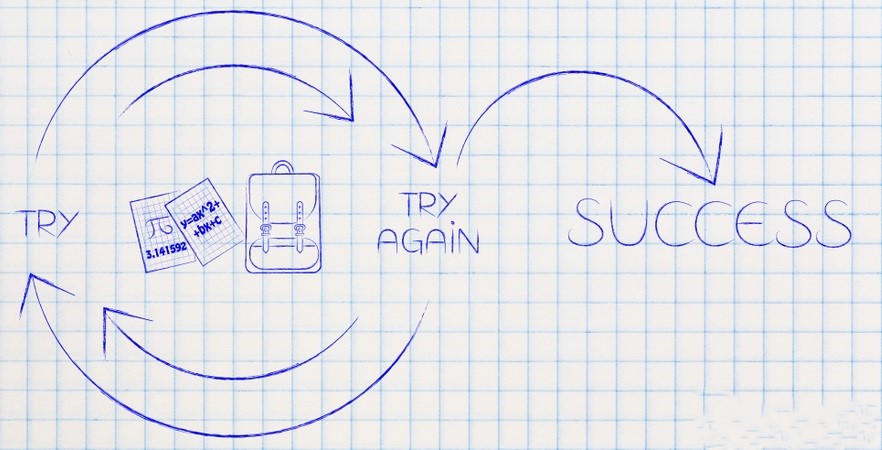
Learn essential techniques to excel in IGCSE Science mock exams and boost your confidence for the real test.
Navigating the intricate terrain of IGCSE Science exams can be both daunting and exhilarating, offering a gateway into the captivating realms of biology, chemistry, and physics. Among the plethora of preparation methods available, mock exams stand out as indispensable tools.
These simulated tests mimic the real exam experience, offering a platform to pinpoint strengths and weaknesses while acquainting oneself with the exam’s structure and time constraints. In this guide, we’ll delve into the significance of mock exam preparation and furnish invaluable insights to help you shine in your IGCSE Science mock exams.
Let’s first go through the specifications of IGCSE Science:

The specifications for IGCSE Science typically vary depending on the examining body. It’s important to refer to the specific syllabus or specifications provided by the examining body offering the IGCSE Science qualification, as details may vary. Here’s a general overview:
| Subject Areas | Curriculum Content | Assessment Structure | Grading | Practical Skills | Resources | International Recognition |
| IGCSE Science often encompasses three main disciplines: Biology, Chemistry, and Physics. Sometimes, there might be an option to take a combined science course that covers aspects of all three. | The curriculum usually includes fundamental concepts, theories, principles, and practical skills related to each scientific discipline. For example: Biology: Cell biology, genetics, ecology, human physiology, etc. Chemistry: Atomic structure, chemical bonding, periodicity, organic chemistry, etc. Physics: Mechanics, electricity, waves, energy, etc. | Assessment typically involves a combination of written examinations and practical assessments. Students may be required to demonstrate their understanding of theoretical concepts as well as their ability to apply scientific knowledge to practical scenarios. | Grades are often awarded based on performance in examinations and practical assessments. The grading scale may vary but often includes grades A*–G, with A* being the highest grade. | IGCSE Science specifications usually emphasize the development of practical skills such as experimentation, data analysis, and scientific investigation. Practical assessments may be conducted in laboratory settings. | Textbooks, laboratory equipment, and online resources are commonly used to support teaching and learning in IGCSE Science courses. | IGCSE qualifications are internationally recognized and are widely accepted by universities and employers around the world. |
Now Let’s Understand Why Mock Exams Matter for IGCSE Science Prep:

Mock exams are invaluable tools for exam preparation as they serve to fine-tune skills and build confidence before the actual test. Just as actors rehearse before stepping onto the stage, mock exams serve as dress rehearsals for the actual performance, refining skills and bolstering confidence.
They offer a realistic preview of the exam format, including question types, structure, and time constraints, reducing anxiety and enhancing confidence on exam day. Additionally, mock exams help identify weaknesses, allowing students to focus their study efforts accordingly. By recognizing challenging topics or question types, students can proactively address them before the actual exam.
Moreover, mock exams simulate the pressure and conditions of the real exam environment, helping students adapt to time constraints and manage stress effectively. Practicing under exam conditions improves performance and builds resilience. Regularly taking mock exams enables students to track their progress over time, comparing scores to gauge improvement and adjust study strategies accordingly.
Furthermore, mock exams provide an opportunity for students to refine their exam techniques, such as time management, question prioritization, and effective use of resources. These skills are crucial for optimizing performance in the actual exam. Finally, successfully completing mock exams and seeing improvement over time boosts students’ confidence levels, alleviating anxiety and allowing them to approach questions with clarity and focus.
Tips on how to effectively utilize mock exams for IGCSE Science exam preparation:

Preparing for IGCSE Science mock exams requires a structured approach that involves thorough content review, practice, and exam strategy. Here’s a guide with examples:
1. Take Mock Exams Seriously:
Treat mock exams as if they were the real deal. Set aside dedicated time and create a quiet, exam-like environment to simulate the test conditions.
Example: Sit down for a timed session with past papers, just like you would during the actual exam. Use a stopwatch to monitor your time and focus solely on the questions at hand.
2. Understand the Syllabus:
Familiarize yourself with the IGCSE Science syllabus, covering Biology, Chemistry, and Physics. Break down each subject into topics and subtopics.
Example:
– Biology: Cell structure, genetics, ecology.
– Chemistry: Atomic structure, chemical bonding, organic chemistry.
– Physics: Mechanics, electricity, waves.
3. Simulate Exam Conditions:
Create a conducive environment for taking mock exams by replicating exam conditions as closely as possible. Sit in a quiet space, adhere to time limits, and avoid distractions to simulate the actual exam experience accurately.
4. Review Content:
Go through your textbooks, class notes, and other resources to ensure you understand key concepts in each topic. Create summary notes or diagrams to aid revision.
Example:
– Biology: Understand the process of photosynthesis and its importance in plant nutrition.
– Chemistry: Learn how to balance chemical equations, such as: H₂ + O₂ → H₂O.
– Physics: Practice calculations involving velocity, acceleration, and displacement.
5. Practice Past Papers:
Utilize past exam papers to familiarize yourself with the exam format and types of questions asked. Time yourself to simulate exam conditions.
Example:
– Biology: Describe the structure and function of a leaf cell. (2-3 marks)
– Chemistry: Define the term ‘element’ and give an example. (1 mark)
– Physics: Calculate the kinetic energy of an object given its mass and velocity. (3-4 marks)
6. Work on Practical Skills:
IGCSE Science exams often include questions on practical experiments and investigations. Practice conducting experiments and analyzing results.
Example:
– Conduct an experiment to investigate factors affecting enzyme activity in Biology.
– Perform titration experiments to determine the concentration of a solution in Chemistry.
– Measure the acceleration due to gravity using a pendulum in Physics.
7. Exam Technique:
Develop effective exam techniques, such as reading questions carefully, managing time, and answering questions strategically.
Example:
– Read each question thoroughly, paying attention to keywords like ‘describe’, ‘explain’, or ‘calculate’.
– Allocate time-based on the number of marks available for each question.
– Show all your work for calculation questions in Physics and Chemistry.
8. Identify Weaknesses:
After completing each mock exam, take the time to review your performance thoroughly. Identify the topics or question types where you struggled the most.
Example: Let’s say you’ve just finished a mock exam in IGCSE Physics and found that you had difficulty with questions related to calculating velocity. Highlight this as a potential weak area.
9. Analyze Mistakes:
Review the questions you answered incorrectly and try to understand why you got them wrong. Was it a lack of understanding of the topic, a misinterpretation of the question, or a calculation error?
Example: You realize that your mistakes in velocity calculations were due to confusion between velocity and acceleration. This analysis helps pinpoint the specific area that needs improvement.
10. Targeted Revision:
Once you’ve identified your weaknesses, focus your revision efforts on those areas. Go back to your textbooks, class notes, or online resources to review the concepts and practice similar questions.
Example: Dive back into your Physics notes to revisit the definitions of velocity and acceleration. Practice solving velocity problems to reinforce your understanding and improve your skills.
11. Track Progress:
Keep track of your progress as you take mock exams and revise. Monitor how your scores improve over time and celebrate your successes along the way.
Example: After a few weeks of targeted revision, you notice that your scores on velocity-related questions have significantly improved. This progress motivates you to keep up the momentum.
Conclusion:

In conclusion, mock exams are essential tools for effective exam preparation for IGCSE Science. By incorporating mock exams into your study routine and following the strategies outlined above, you can identify your strengths and weaknesses, familiarize yourself with the exam format, and improve your overall performance on the big day. Remember, practice makes perfect, so make the most of mock exams to achieve your desired results in your IGCSE Science exams. Good luck!
Still unsure of how to Prepare for IGCSE Science Mock Exams? Look no further than Young Scholarz. Think of us as the education superheroes, here to equip you for success. Visit our website for more information – trust me, you won’t regret it!





